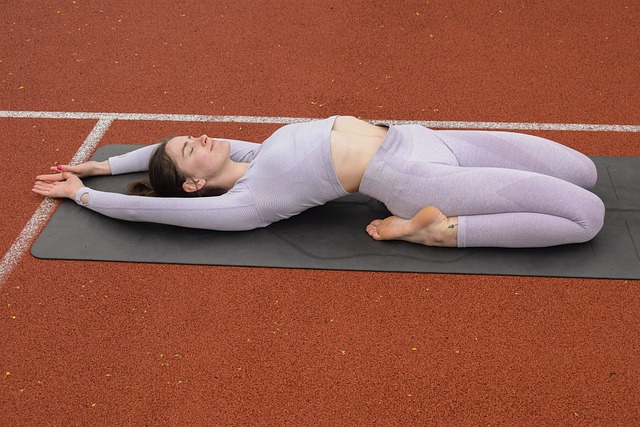Spending time outdoors is a powerful form of self-care that improves mental well-being by reducing stress, anxiety, and symptoms of depression. Outdoor activities stimulate physical movement, release endorphins, boost vitamin D levels through sunlight exposure, and encourage mindfulness. Research shows that immersing oneself in green spaces reduces cortisol, increases serotonin, and enhances mood. Incorporating regular outdoor routines into self-care practices is an accessible way to promote mental resilience, improve overall quality of life, and cultivate tranquility.
In today’s fast-paced world, finding ways to enhance mental health and overall well-being is paramount. Outdoor activities offer a powerful antidote to stress and a vibrant pathway to improved mood and physical health. This article explores the profound connection between nature and human psychology, highlighting scientific insights into how green spaces boost mental resilience. We delve into practical self-care routines grounded in natural environments, offering creative ideas for outdoor experiences that cultivate joy and tranquility. Discover strategies to integrate these practices seamlessly into your life, unlocking the potential of self-care routines outdoors.
- The Connection Between Outdoor Activities and Mental Well-being
- – Exploring nature's impact on mood and stress reduction
- – Scientific insights into the benefits of green spaces
- Self-Care Routines in Nature: A Holistic Approach
The Connection Between Outdoor Activities and Mental Well-being

Spending time outdoors is more than just a change of scenery; it’s a powerful tool for enhancing mental well-being as part of your self-care routines. Research shows that being in nature can significantly reduce symptoms of depression and anxiety, improving overall mood and sense of calm. The simple act of engaging with the outdoor environment stimulates the senses, encouraging mindfulness and a present-moment awareness that can help to quiet the mind and alleviate stress.
Natural settings offer an opportunity for physical activity, whether it’s a leisurely hike, a game of frisbee in the park, or a swim in a nearby lake. This combination of movement and connection with nature releases endorphins, boosting mood and promoting a sense of vitality. Moreover, exposure to sunlight during outdoor activities contributes to vitamin D production, which plays a crucial role in maintaining cognitive function and regulating mood.
– Exploring nature's impact on mood and stress reduction

Spending time in nature has been shown to have profound effects on our mental well-being and stress levels, making it an essential component of any self-care routine. The simple act of immersing yourself in outdoor environments can trigger a series of physiological responses that promote relaxation and enhance mood. Research suggests that being surrounded by greenery reduces cortisol, often referred to as the stress hormone, and increases the production of serotonin, a neurotransmitter associated with feelings of happiness and calmness.
Whether it’s a hike through the woods, a walk in a park, or simply sitting by a peaceful stream, connecting with nature offers a much-needed respite from the demands of daily life. This practice allows individuals to disconnect from technology and reconnect with themselves, fostering a sense of tranquility and clarity. By incorporating these outdoor activities into our self-care routines, we can effectively combat stress, anxiety, and depression while promoting overall physical and mental health.
– Scientific insights into the benefits of green spaces

Spending time in green spaces has been shown to significantly improve mental well-being, a growing area of interest for researchers exploring the intersection of nature and human health. Numerous scientific studies have highlighted the therapeutic effects of surrounding ourselves with greenery, incorporating these findings into our self-care routines. Research suggests that simply walking in natural environments can reduce stress levels, lower blood pressure, and enhance overall mood. The presence of trees, plants, and open spaces offers a calming effect, allowing individuals to disconnect from the demands of daily life and foster a sense of tranquility.
These green oases provide more than just aesthetic pleasure; they actively contribute to our physical health. Exposure to natural light and fresh air is vital for regulating sleep patterns and boosting energy levels. Moreover, engaging in outdoor activities like walking, hiking, or gardening can encourage regular exercise, promoting better cardiovascular health and strengthening the immune system. Incorporating nature into self-care practices offers a simple yet powerful way to enhance mental resilience and overall quality of life.
Self-Care Routines in Nature: A Holistic Approach

In today’s fast-paced world, integrating self-care routines into our lives is more important than ever for maintaining both physical and mental health. Outdoor activities offer a unique opportunity to combine self-care with nature’s therapeutic benefits. Spending time in green spaces has been proven to reduce stress, improve mood, and boost overall well-being. Whether it’s a morning hike, an afternoon walk in the park, or simply sitting by a nearby body of water, immersing oneself in nature allows for a holistic approach to self-care.
Engaging in regular outdoor routines can cultivate a sense of tranquility and provide an escape from the daily grind. The fresh air, natural scenery, and physical activity all contribute to a rejuvenated state of mind. Additionally, connecting with nature encourages mindfulness, helping individuals to become more present and appreciate the simple pleasures around them. By incorporating these self-care practices into our outdoor experiences, we can foster a deeper connection with ourselves and the world beyond, ultimately leading to improved mental and physical health.
Immerse yourself in nature’s embrace and unlock unparalleled self-care routines. Scientific evidence overwhelmingly supports the idea that outdoor activities are a powerful tool for boosting mental well-being and health. By connecting with our surroundings, whether through hiking, gardening, or simply sitting in a park, we can significantly reduce stress and elevate our moods. Incorporating these natural remedies into your life may just be the key to enhancing your overall happiness and fostering a deeper sense of calm.
